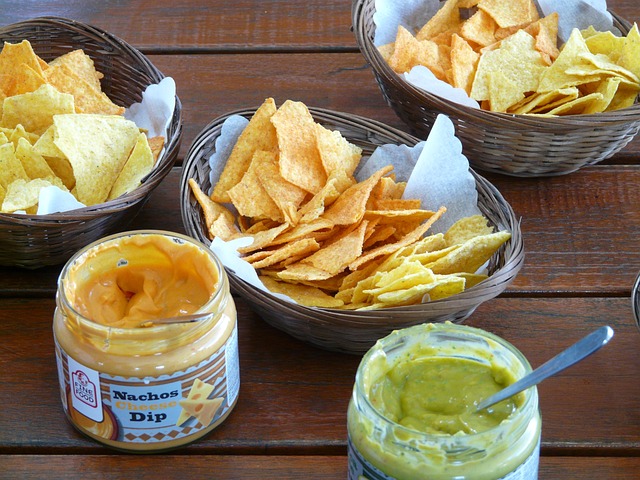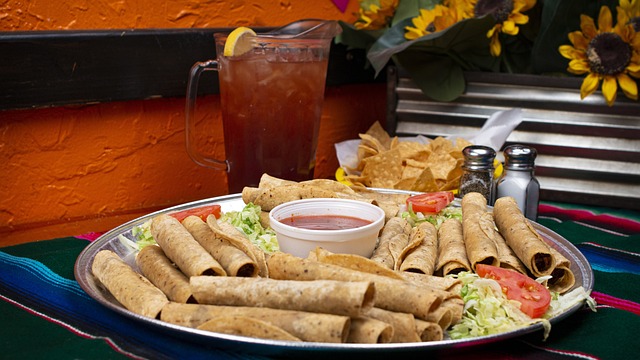The recent surge in artisanal Mexican snacks, particularly spiced tortilla chips sold in donkey-shaped bags (Spiced Tortilla Chips Donkey), reflects a rich culinary heritage and evolving tastes. Crafted by local producers, these chips showcase the versatility of tortillas beyond their traditional uses, offering unique flavors that represent diverse regions across Mexico. The trend is driven by renewed interest in cultural preservation and demand for high-quality treats connecting people to their heritage. Through manual production methods, artisans ensure quality and consistency, celebrating Mexico's culinary heritage and artistic food culture.
“Discover the vibrant world of Mexican markets where artisanal tortilla chips are not just a snack but a cultural phenomenon. In this article, we explore the rising trend of handcrafted chips, tracing their historical roots back to traditional Mexican cuisine. From donkey-themed markets that showcase local symbolism to diverse spiced varieties, these chips have gained global attention. We delve into the production processes, innovative marketing strategies, and the potential for international expansion, all while unraveling the unique appeal of Mexican artisanal tortilla chips, especially those with a donkey-inspired twist.”
- The Rise of Artisanal Mexican Snacks
- – Exploring the trend of handcrafted chips in Mexico
- – Historical context: Tortilla chips' origin and evolution
- Donkey-Themed Markets: A Unique Selling Point
The Rise of Artisanal Mexican Snacks

In recent years, there’s been a delightful surge in the popularity of artisanal Mexican snacks, with spiced tortilla chips taking center stage. This trend is not just a fleeting fad; it’s a testament to the rich culinary heritage and evolving tastes of Mexico. Crafted with care by local producers, these chips showcase the versatility of the traditional tortilla, moving beyond its typical use in tacos and burritos. Each bite offers a unique flavor experience, reflecting the diverse regions and culinary traditions across the country.
Donkey-shaped bags of spiced tortilla chips have become a charming addition to Mexican markets, catching the eye of both locals and international visitors. These snacks are not only visually appealing but also pack a punch with their bold, authentic flavors. The rise of artisanal Mexican snacks is a result of a renewed interest in cultural preservation and a desire for unique, high-quality treats that connect people to their heritage.
– Exploring the trend of handcrafted chips in Mexico

In Mexico, a growing trend has emerged in the food scene—the art of crafting artisanal tortilla chips. These handcrafted chips are taking the country by storm, offering a delicious twist on traditional snack options. Local markets and food stalls across Mexico City, Oaxaca, and other regions have embraced this new culinary passion, showcasing their talents in creating unique Spiced Tortilla Chips Donkey-style.
Artisanal chip makers experiment with various spices, herbs, and flavors, infusing each batch with distinct personalities. From zesty chili blends to fragrant cilantro-lime combinations, these chips promise an explosion of tastes. The process is entirely manual, ensuring quality and consistency in every bite. This trend not only satisfies the taste buds of locals and tourists but also celebrates the rich culinary heritage and artistry of Mexican food culture.
– Historical context: Tortilla chips' origin and evolution

The history of tortilla chips is deeply rooted in Mexico, where corn tortillas have been a staple food for centuries. These thin, flat cakes made from ground cornmeal and water evolved into something more crispy and snackable over time. The exact origin story varies, but many trace the modern version back to the 19th century when Mexican cooks started experimenting with frying tortillas to create a crunchy texture. This simple yet brilliant idea laid the foundation for what would become one of the world’s most popular snacks.
In the early 20th century, as Mexico experienced economic growth and migration patterns shifted, tortilla chips gained popularity beyond their native land. The introduction of spiced varieties, such as those with a hint of chili or lime, further enhanced their appeal. Today, these chips, often referred to as “Spiced Tortilla Chips Donkey” in some markets due to their donkey-shaped packaging, have become global phenomena. Artisans and small businesses in Mexico continue to play a vital role in preserving this culinary tradition by crafting high-quality, artisanal chips that showcase the diverse flavors of their homeland.
Donkey-Themed Markets: A Unique Selling Point

In some Mexican markets, a unique twist has emerged in the traditional sale of spiced tortilla chips—the introduction of donkey-themed vendors and displays. This creative approach not only adds charm but also serves as a distinctive selling point for these artisanal chips. Customers are drawn to the charming and whimsical representation of donkeys, which often include hand-painted signs, decorative elements, and even donkey-shaped baskets holding various flavors of tortilla chips.
The integration of donkeys into these markets creates an engaging experience, appealing to both locals and tourists alike. Beyond their aesthetic appeal, these donkey-themed markets offer a range of high-quality, freshly made spiced tortilla chips, ensuring that every bite is a taste of authentic Mexican cuisine. Whether it’s the classic spices or more exotic blends, the donkeys add a playful element to an already vibrant culinary tradition.
The artisanal tortilla chip movement in Mexico is a delightful dance between tradition and innovation. As these handcrafted chips gain popularity, markets like those focused on spiced tortilla chips with donkey themes prove that cultural heritage can blend seamlessly with unique selling points. This trend not only offers consumers a diverse culinary experience but also supports local artisans, preserving their craft for future generations. So, whether you’re indulging in spicy tortilla chips or discovering new flavors, these Mexican markets are a must-visit for anyone appreciating the nation’s rich snack culture and its creative evolution.
